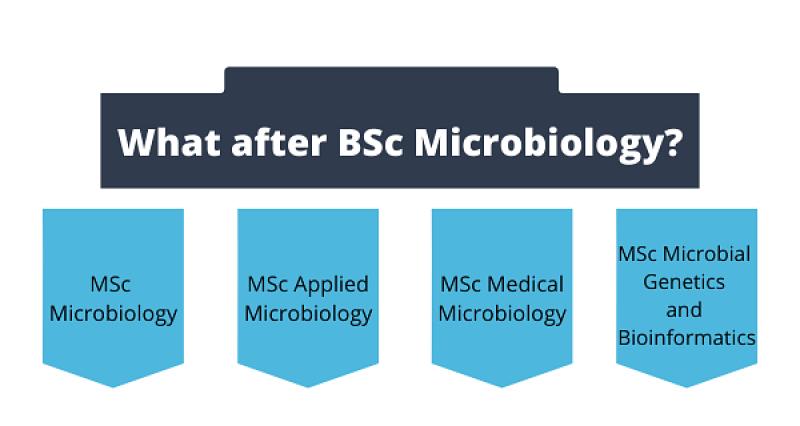What is a general microbiology course?
A general microbiology course is an academic program that covers the fundamental principles and concepts of microbiology, which is the study of microscopic organisms such as bacteria, viruses, fungi, protozoa, and algae. These courses are typically offered at colleges, universities, or as part of a biology-related curriculum.
Here's an overview of what a general microbiology course might cover:
Introduction to Microbiology: Understanding the scope and significance of microbiology, historical developments, and the impact of microorganisms on life and the environment.
Microbial Structure and Function: Study of the structure, anatomy, and physiology of microorganisms. This includes cell structure, metabolism, growth, and reproduction of bacteria, viruses, fungi, and other microorganisms.
Microbial Diversity: Exploration of different types of microorganisms, their classification, taxonomy, and diversity in various environments. This involves learning about the characteristics and identification of different microbial species.
Microbial Genetics: Understanding microbial genetics, including mechanisms of genetic variation, DNA replication, gene expression, mutation, and genetic transfer in microorganisms.
Microbial Pathogenesis and Immunology: Study of microbial diseases, mechanisms of infection, host-pathogen interactions, and the immune response. This includes how microorganisms cause diseases and how the immune system responds to infections.
Microbial Ecology and Environmental Microbiology: Exploring the role of microorganisms in natural ecosystems, their interactions with the environment, and their impact on ecological processes.
Applied Microbiology: Applications of microbiology in various fields such as medicine, agriculture, biotechnology, food industry, and environmental science. This includes topics like medical microbiology, industrial microbiology, and bioremediation.
Laboratory Techniques: Hands-on experience in basic microbiological techniques, including culturing, staining, microscopy, and identification of microorganisms.
These courses often include lectures, laboratory sessions, discussions, and assignments to provide students with a comprehensive understanding of microbiology and its practical applications in diverse fields. General microbiology courses lay the foundation for more specialized studies in microbiology or related fields and are beneficial for students pursuing careers in healthcare, research, biotechnology, and environmental sciences.
What topics are typically covered in a general microbiology course?
Sure, here is an English version of the answer to your question, without images:
What topics are typically covered in a general microbiology course?
A general microbiology course delves into the fascinating world of microscopic organisms, exploring their structure, function, diversity, and impact on our lives. Here are some of the key topics you can expect to encounter:
Introduction to Microbiology:
- The nature and history of microbiology, including the contributions of pioneers like Antonie van Leeuwenhoek and Louis Pasteur.
- Classification and characteristics of microorganisms, encompassing bacteria, archaea, protists, and viruses.
- The diverse habitats where microbes thrive, ranging from extreme environments to our own bodies.
Microbial Structure and Function:
- The microscopic anatomy of prokaryotic and eukaryotic cells, including cell walls, membranes, cytoplasm, and organelles.
- Metabolic pathways used by microbes to obtain energy and nutrients, such as photosynthesis, respiration, and fermentation.
- Mechanisms of reproduction in microbes, including binary fission, budding, and sporulation.
Microbial Growth and Control:
- Factors influencing microbial growth, such as temperature, pH, oxygen availability, and nutrients.
- Methods for controlling microbial growth, including physical (heat, radiation), chemical (disinfectants, antibiotics), and biological (bacteriophages) agents.
Human Microbiology:
- The normal microbiota of the human body, including commensals and pathogens.
- Microbial diseases and their mechanisms, such as bacterial infections, viral infections, and fungal infections.
- The immune system's role in defense against microbial pathogens.
Environmental Microbiology:
- The crucial role of microbes in nutrient cycling, decomposition, and bioremediation of pollutants.
- The impact of human activities on microbial communities and the potential consequences for the environment.
Applied Microbiology:
- Applications of microbes in various fields, such as food production, medicine, biotechnology, and agriculture.
- The ethical considerations and potential risks associated with emerging technologies like genetic engineering and synthetic biology.
These are just some of the core topics covered in a general microbiology course. The specific content and depth may vary depending on the specific syllabus and instructor. However, regardless of the specific curriculum, a general microbiology course offers a valuable foundation for understanding the ubiquitous and multifaceted world of microbes.
Remember, microbiology is a dynamic and ever-evolving field, with new discoveries and applications constantly emerging. This exciting field offers plenty of opportunities for further exploration and specialization, whether you're interested in research, healthcare, environmental science, or other fields.
I hope this overview provides a helpful glimpse into the world of general microbiology! If you have any further questions about specific topics or resources, please feel free to ask.












